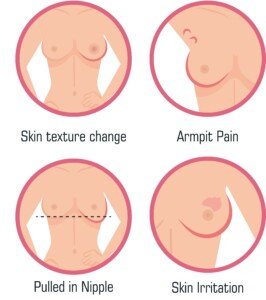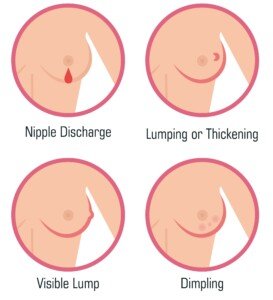
Can breast cancer really go away on its own in some cases — a spontaneous resolution? Or could these cases simply be that of an initial misdiagnosis?
A report in the Journal of the American College of Radiology (2017) says that a breast cancer that’s detected via mammogram will not spontaneously go away or even retract in the absence of treatment.
In this study, none of the untreated breast cancers had gone away or even regressed at the time of the follow-up mammogram.
The report points out that there is no known method for identifying which malignancies will progress enough to be fatal and which will not.
Previous Research Says Breast Cancer Can Go Away On Its Own
“…a proportion of breast cancers will go away without medical or surgical intervention.”
This is the conclusion in the journal Current Oncology (April 2012).
The paper also mentions a Swedish study (Zahl et al) that showed a regression in some cases of breast cancer.
But here again, the study authors point out that there is no way of knowing which breast cancers will go on to kill the patient and which will not.
And regression doesn’t automatically mean eventual death of all the cancer cells.
This is why ALL patients with a positive biopsy are recommended some form of treatment.

FOUR BREAST CANCER SYMPTOMS. Freepik.com, studiogstock

FOUR MORE BREAST CANCER SYMPTOMS. Freepik.com, studiogstock
It makes sense that even if, in a parallel universe, 99 percent of breast cancers go away on their own, ALL women should get age-appropriate mammograms on a routine basis and appropriate treatment if a biopsy comes back positive.
Spontaneous Resolution of Breast Cancer: Don’t Count On It
“No, breast cancer cannot go away without any treatment (local or systemic),” says Dr. Aashini Master, DO, a medical oncologist with a special focus on breast cancer treatment.
Dr. Master explains, “Some cancers are very slow growing and may not metastasize in a woman’s lifetime, depending on her age at diagnosis.
“However, they do not spontaneously resolve.”
Spontaneous resolution of malignant cells would mean that for some very mysterious reason, the cells started to age – which is the only way cells die naturally. When normal cells get very old, they simply stop dividing.
But cancer cells do not age. In fact, their telomeres do not shorten with each cell division – which intrigues both cancer and age researchers.
In very old people, their normal cells have only nubs for telomeres, because with each division of a normal cell, the telomeres shorten.
Young children’s cells have very long telomeres.
Telomeres are protective caps at the ends of chromosomes to keep the chromosomal strands organized.
A good way to envision telomeres is to compare them to the plastic caps of shoelaces – if shoelaces were chromosomes. These caps keep the shoelaces tidy.
So it just seems absolutely impossible that a breast cancer tumor would just one day start dying and go away without any treatment intervention.
“I would seriously question the initial diagnosis if that were the case,” says Dr. Master.
Though cancer has been known to “spontaneously go into remission,” this doesn’t mean that every cancer cell has died.
It simply means that the patient has been declared with NED: no evidence of disease.
There may be microscopic metastases in a bone, the lungs or brain of a breast cancer patient who’s been declared in remission.
It can take years for those microscopically sized tumors to proliferate enough to start causing symptoms such as shortness of breath or headaches.
KAB for Breast Health
Dr. Master is with the Keep A Breast (KAB) Foundation, which launched its Keep a Breast app Sept. 1, 2020.
The Keep a Breast app focuses on information, support and access, connecting users who’ve discovered something concerning with a telehealth medical professional via KAB’s partnership with Carbon Health, a technology-enabled healthcare provider – allowing users to have direct, instant support.

 r. Master
r. Master







































